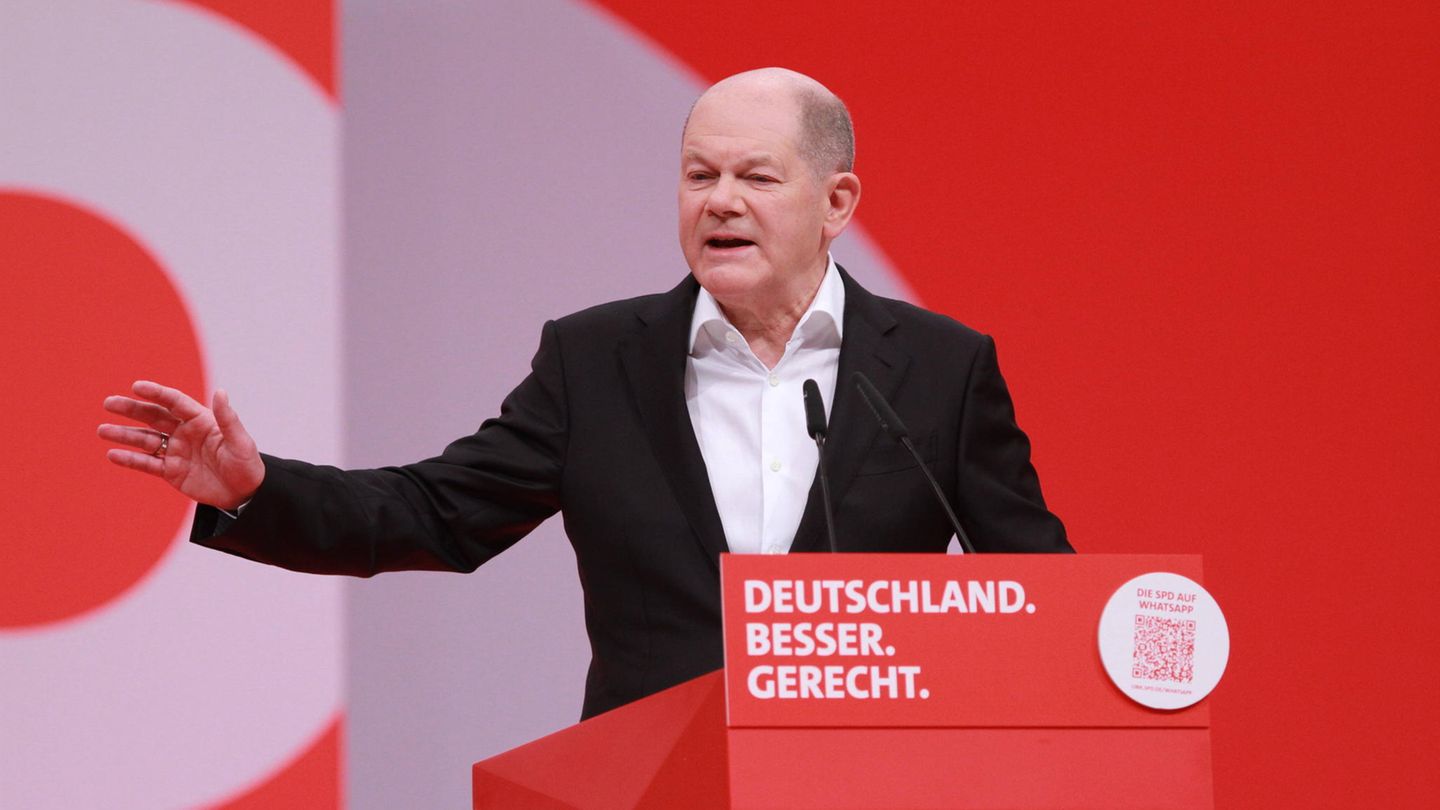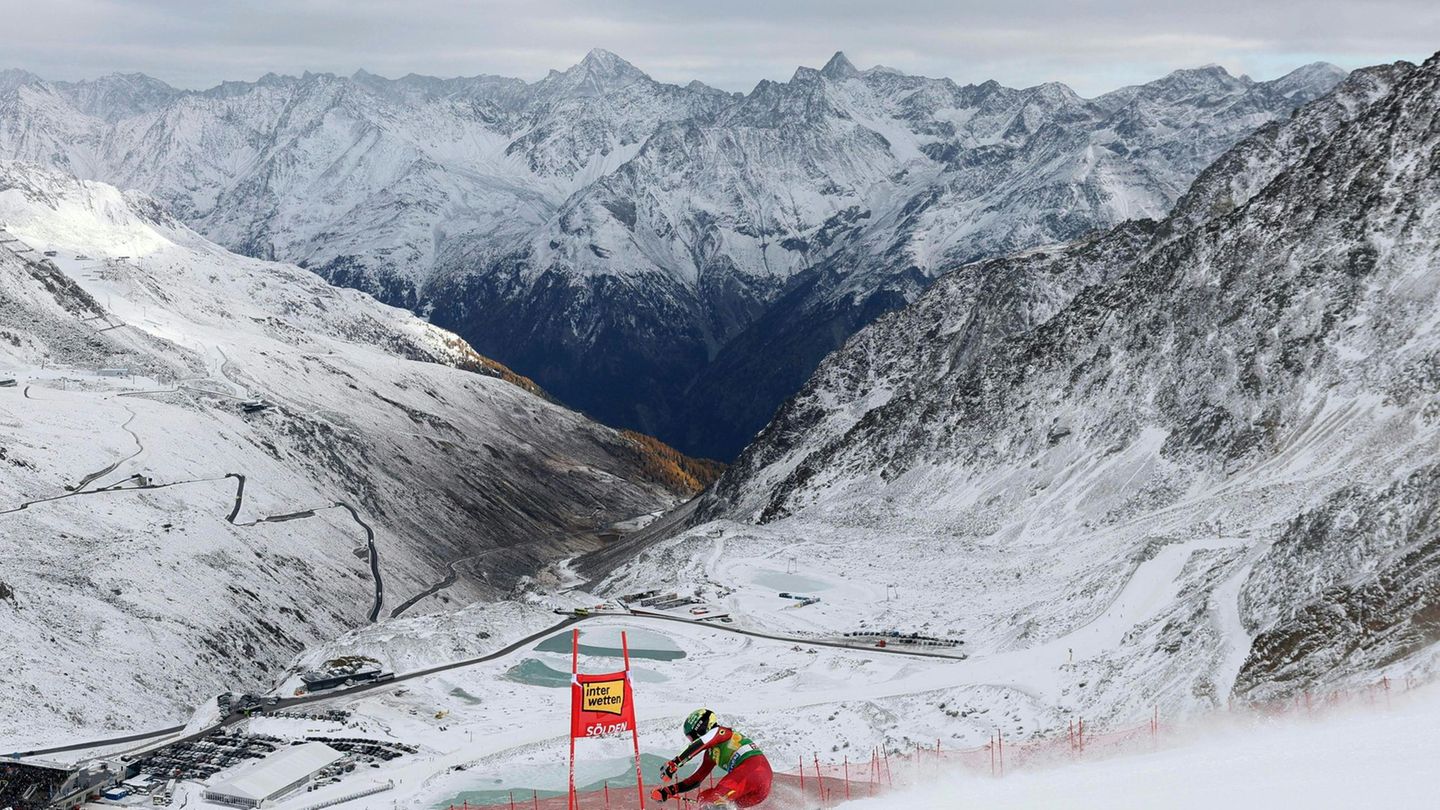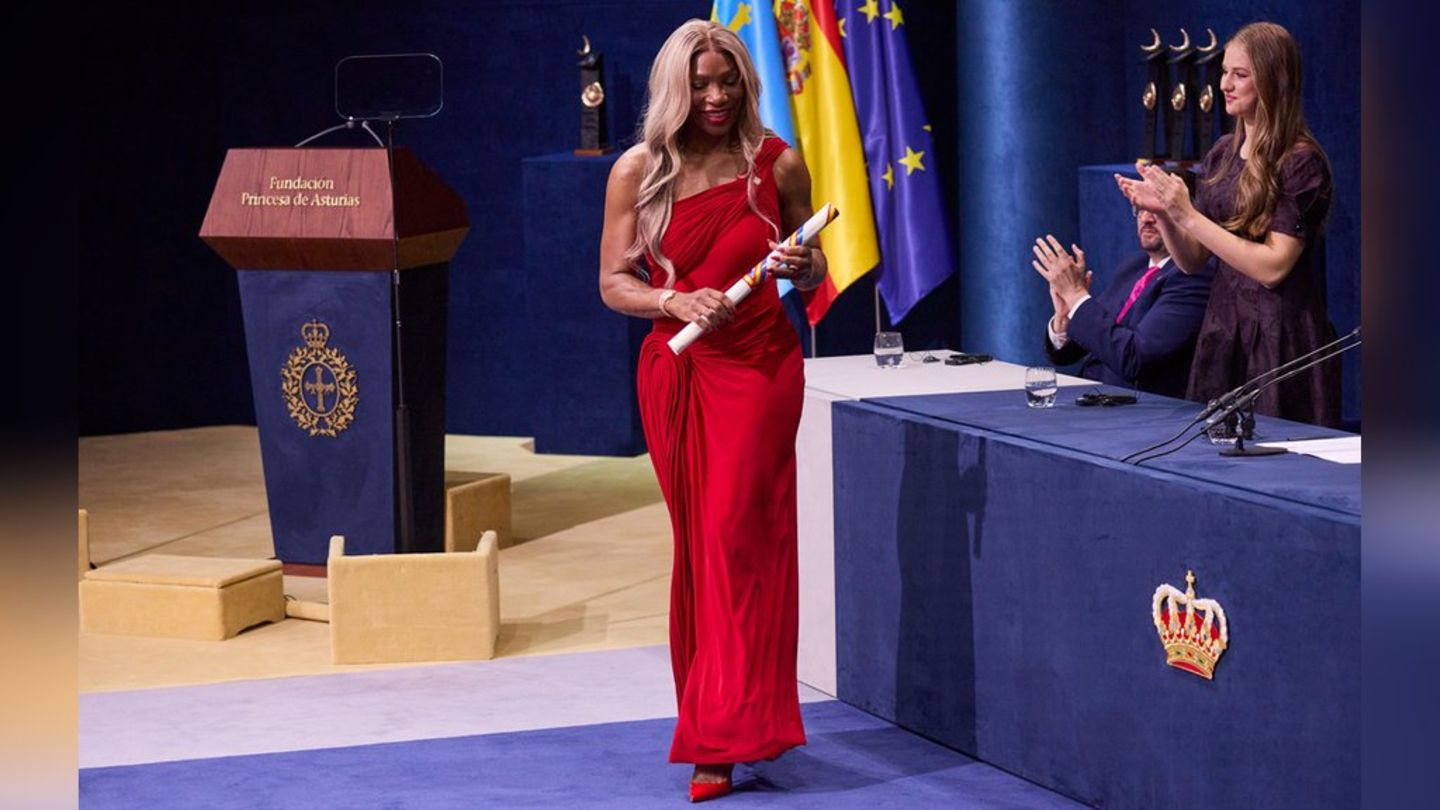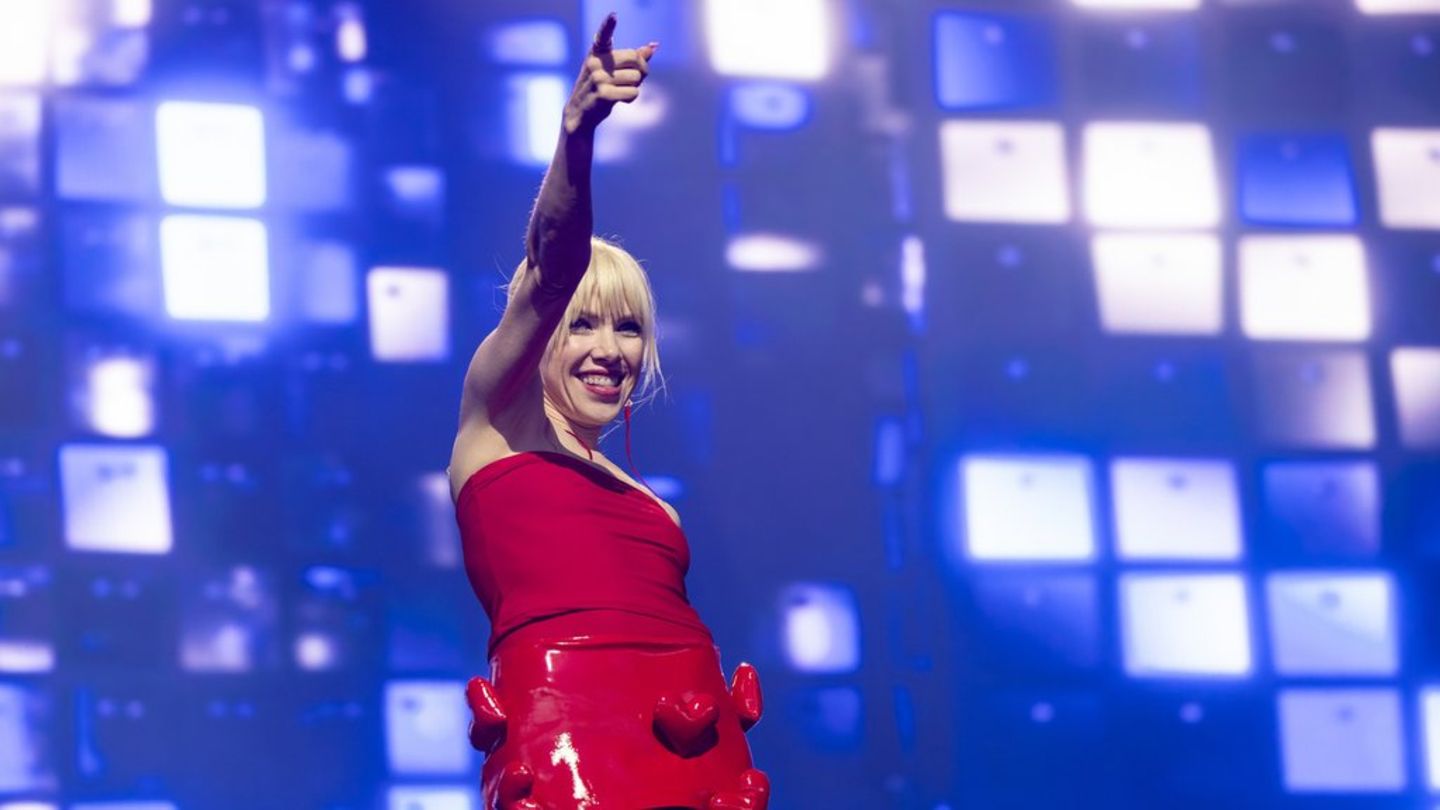On site
The Chancellor is increasing the pressure on the FDP in the budget dispute – his party thanks him for it.
The applause at the end is long and the delegates seem relieved. Olaf Scholz spoke for almost an hour at the SPD party conference – and his party and the public actually know more now. Above all, the Chancellor’s line in the traffic light coalition’s paralyzing budget dispute is clearer after this appearance. This will not generate any enthusiasm, especially in the FDP.
Normally, Scholz doesn’t like to let anyone see his hand in difficult negotiations. His motto is that if you don’t commit, you don’t have to declare any concessions afterwards. But in the debate about the federal budget for 2024, the Chancellor draws a red line in his speech at the party conference and makes a clear demand, which is aimed primarily at his Finance Minister Christian Lindner.
Wave a giant fence post
Scholz spoke for about 20 minutes, praised the unity of his party, and listed some of his government’s achievements, especially the crisis management after the start of the war in Ukraine. “We got the country through this winter.” Then he turns to Ukraine itself. The war will not be over as quickly as one would like, says Scholz, and makes it clear: “We will continue to support Ukraine in its defensive fight.” But to do this we have to “make decisions that will keep us in a position to do that.”
The fence post that the Chancellor is waving with is the size of a menhir. In the negotiations with the FDP and the Greens, Scholz is obviously aiming to declare an emergency in the 2024 budget, which would allow the government to circumvent the debt brake. Other speakers from the SPD leadership have already made this demand more or less blatantly at the party conference, most notably the party chairmen Saskia Esken and Lars Klingbeil.
Suspend the debt brake – that is the consensus in the SPD
Such a step would not only be compatible with the Federal Constitutional Court’s ruling, it would also be difficult for the opposition to criticize politically, at least from the Union parties that have so far supported the government in Ukraine policy. The previous commitments to Ukraine for next year alone amount to eight billion euros. There would also be costs for the Ukrainian refugees in Germany. If this money were raised through debt beyond the debt brake, at least a significant part of the 17 billion euros that Christian Lindner is missing for the 2024 budget would be raised.
The finance minister hasn’t ruled out another emergency, but he hasn’t been particularly enthusiastic about it either. The question is what price he will charge for it, also in view of the coalition-skeptical mood in his party. Of course Scholz knows that too. In his speech, he addressed the topic with gentle irony: After the ruling from Karlsruhe, the preparation of the budget “hasn’t become any easier,” jokes the Chancellor about the deep crisis of the traffic lights. It is a “very difficult task, especially if you can’t do it the way you want to do it yourself and still have to come to an agreement with others.” For a good three weeks, Scholz has been wrestling with Lindner and the Green Vice Chancellor Robert Habeck about the consequences of the verdict. A timely preparation of the new budget by the end of the year has already failed, which has not improved the government’s reputation.
Social cuts? “You have to be able to resist sometimes,” demands the Chancellor
But Scholz made one thing clear at the party conference, much to the delight of the delegates: “In such a situation, there will be no dismantling of the welfare state in Germany,” shouts the Chancellor. The accusation that the welfare state is too lavish comes up again and again. “I don’t see it that way,” says Scholz. “Something has grown over the decades that is part of our country’s DNA and is the basis of our prosperity,” said the Chancellor.
Scholz vehemently defends the increase in citizens’ money. He finds the debate about cuts “very strange.” It is derived from applicable laws. “In such situations you have to resist sometimes,” says the Chancellor. The critics wanted to attack the system itself “because they always think that those who don’t have a job get too much money.”
Confidence, that is one of the key words in Scholz’s speech. “You have to be able to believe that things will be good for your children and grandchildren.” Of course there is debate about this, everywhere in Europe, but also in Germany. And the Chancellor admits with regard to some of the coalition rows: “I really didn’t need some of what happened there.” And then he adds a sentence that can certainly be understood as a warning to the liberal coalition partner: “What Germany doesn’t need are people who won’t do their job.”
Source: Stern
I have been working in the news industry for over 6 years, first as a reporter and now as an editor. I have covered politics extensively, and my work has appeared in major newspapers and online news outlets around the world. In addition to my writing, I also contribute regularly to 24 Hours World.




